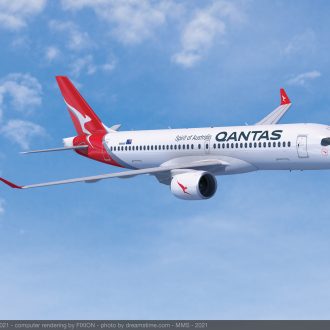 The Transport Workers’ Union (TWU) says Qantas should pay back the $2.7 billion of government handouts it received during the pandemic.
The Transport Workers’ Union (TWU) says Qantas should pay back the $2.7 billion of government handouts it received during the pandemic.
The airline gutted its workforce, “including through illegal sackings”, and sent standards into a nosedive, according to the TWU.
Last week, TWU National Secretary Michael Kaine, in his speech to the union’s National Council, pledged to utilise all industrial instruments available to put workers at the centre of the rebuild of Qantas and the aviation industry, including through applications to vary aviation awards and future multi-employer bargaining.
The union says the record Qantas $2.5 billion profit forecast shows the need for a Safe and Secure Skies Commission to rebalance aviation to an industry built on good, secure jobs and service standards “rather than exorbitant profits, shareholder buybacks and multimillion-dollar executive bonuses”.
TWU National Secretary Michael Kaine said: “This obscene profit forecast is the result of Qantas management bleeding dry workers, passengers and the taxpaying public. The right thing to do would be to pay back every dollar of no-strings government handouts Qantas received from Scott Morrison before it trashed every essential section of the airline to prop up executives and shareholders.”
Qantas competitors also vented their fury over handouts to Qantas. In 2020, as the pandemic raged, Rex accused Qantas of “embarking on an opportunistic strategy of flooding the regional airline market with additional excess capacity to eliminate weaker regional competitors”.
Rex called the Qantas action “clearly anti-competitive and particularly unconscionable at a time when Qantas is receiving almost one billion dollars of Federal assistance while laying off thousands of workers under the pretext of reducing losses.”
Rex called on the Morrison Government “to cease all grants to Qantas if it persists with this opportunistic behaviour” – but its call fell on deaf ears.
Back to the present, the TWU’s Kaine referred last week to “the $100 million increase to the share buyback scheme”, which he called “a kick in the guts to illegally sacked workers who were told their jobs were sacrificed to save this amount of money.”
Keane said Qantas passengers had faced “chronic airport chaos because those 1700 families lost their livelihoods, which has been found twice by the Federal Court to have been illegally motivated to avoid them accessing their industrial rights.
“A $2.5 billion profit for the first full financial year since airfares skyrocketed, complaints against Qantas rose 70%, the Federal Court found for a second time that the airline was responsible for the largest case of illegal sackings in Australian history, and a recently announced wet-leasing arrangement, essentially outsourcing and offshoring more essential jobs, just shows how out-of-whack aviation has become,” he continued.
“This clearly demonstrates the need for dedicated regulation to rein in corporate greed for the sake of a reliable industry with quality jobs and service standards.
“The TWU has committed to utilising every industrial instrument at our disposal to lift standards for aviation workers and rebuild the industry, including award applications and multi-employer bargaining when the time is right.
“To return a strong, resilient industry, aviation needs to be turned on its head. The Federal Government should establish a Safe and Secure Skies Commission to reset the industry by setting and overseeing appropriate standards across our airports,” he said.
On Tuesday, Qantas Group posted a market update to the Australian Stock Exchange, crediting “very positive” trading conditions with creating an estimated pre-tax profit of $2.45 to $2.47 billion for the 2023 financial year.
The airline attributed the group’s “strong balance sheet” to increased demand for travel, the arrival of new aircraft and higher fare and freight prices. Many passengers have noticed higher fares, though Qantas Group chief executive Alan Joyce says these could soon moderate.
“More parts of the aviation supply chain are returning to normal, which means we’re able to put some of the spare aircraft and crew we kept in reserve back in the schedule,” Joyce said. “That’s combining with lower fuel prices to help put downward pressure on fares, which is good news for customers.”
The Transport Workers Union is currently locked in a court battle with Qantas over the sacking of 1700 ground staff at the height of the pandemic.
Written by: Peter Needham















